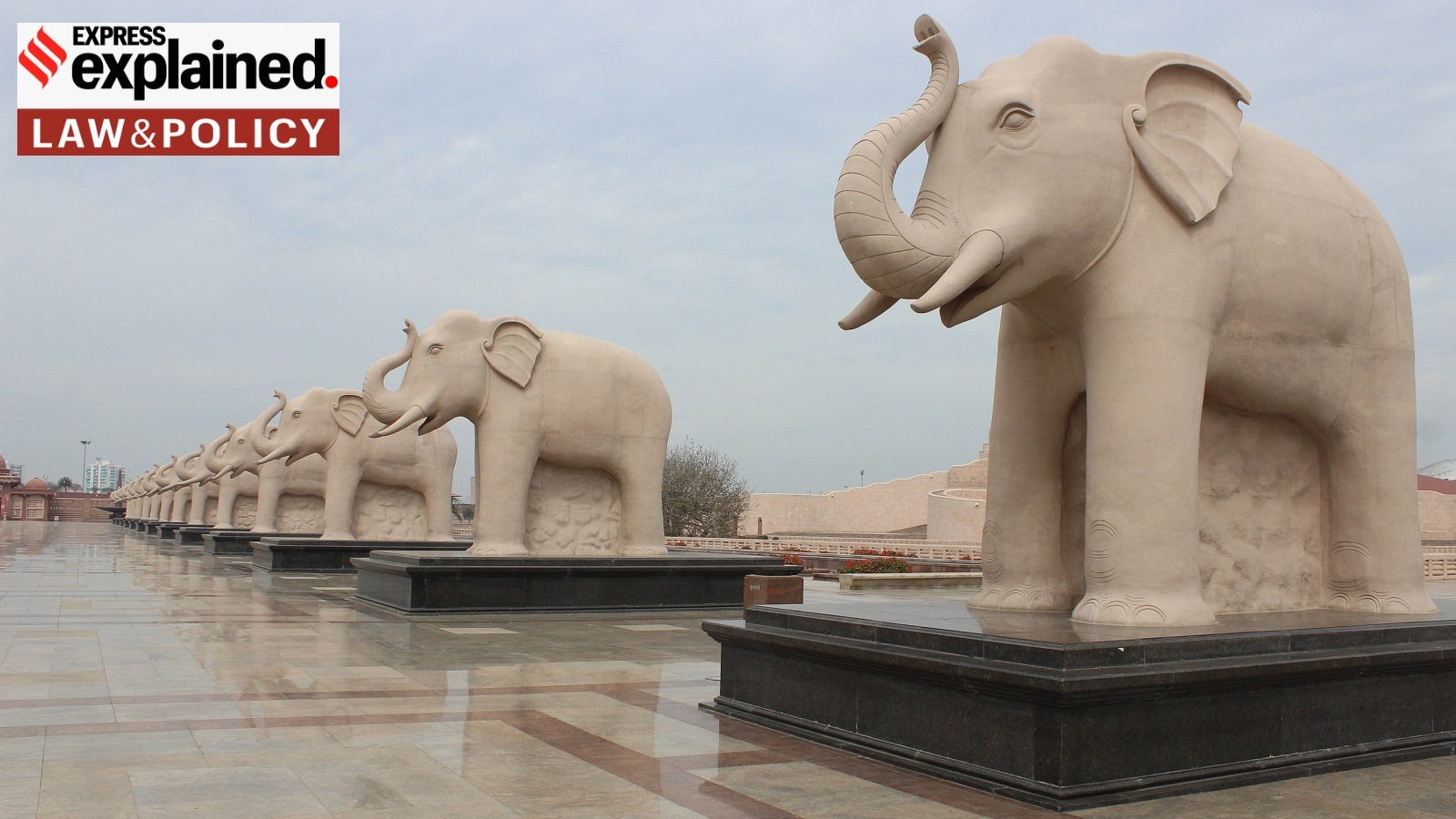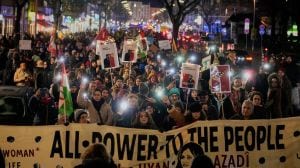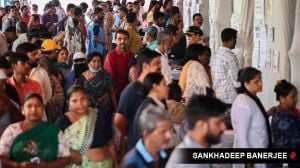Why SC dismissed PIL pertaining to ‘memorial scam’, involving Mayawati and BSP
The PIL was filed in 2009 by two advocates — Ravi Kant and Sukumar — seeking directions to stop further construction, and remove the statues of Mayawati and the elephants
 Ambedkar Memorial Park at Lucknow in Uttar Pradesh. (Photo: Wikimedia Commons)
Ambedkar Memorial Park at Lucknow in Uttar Pradesh. (Photo: Wikimedia Commons)The Supreme Court on January 15 dismissed a PIL alleging financial irregularities in the construction of statues — also known as the “memorial scam” — at the behest of the Uttar Pradesh government under former Chief Minister Mayawati between 2007 and 2012.
Mayawati and the Bahujan Samaj Party (BSP) were accused of misappropriating hundreds of Crores in public funds to construct several statues of elephants (the BSP election symbol), BSP founder Kanshi Ram, and of Mayawati herself in public places.
The PIL was filed in 2009 by two advocates — Ravi Kant and Sukumar — seeking directions to stop further construction, and remove the statues of Mayawati and the elephants. It also sought an order for the CBI to investigate the alleged misuse of funds, direct Mayawati and the BSP to provide compensation for funds used, and issue guidelines for building memorials and statues of national leaders.
The memorial scam invited scrutiny from a host of authorities in the years since the allegations were first made. Aside from the SC, the ECI, UP Lokayukta, Central Vigilance Commission, and the Enforcement Directorate have already weighed in on the allegations or are investigating them.
Why did the SC dismiss the petition?
The Bench of Justices B V Nagarathna and S C Sharma held that the reliefs sought in the petition had become “infructuous” (unnecessary or fruitless), and could no longer be granted.
The Bench stated that construction for the statues had already been completed and taking them down would require further use of public funds. The bench also noted that the Election Commission of India (ECI) has issued guidelines on the construction of statues and memorials using public funds.
What did the ECI say?
In April 2009, the ECI issued a communication (clarifying past instructions) stating that “photographs and images of the political functionaries, who have deep influence on the minds of electors and many of whom are still active in public life and may even be contesting the current general elections, should not be displayed in the government buildings and premises as that would have the effect of disturbing the level playing field vis-a-vis the political functionaries of other parties and candidates.”
Based on this communication, Ravi Kant and Sukumar petitioned the ECI in July 2009 to freeze the elephant election symbol of the BSP and disqualify Mayawati from contesting further elections as her statues would “continue to create an unequal playing ground for her opponents during elections”.
However, the ECI in October 2010 ruled that the case does not fall under any of the grounds for disqualification for Parliament or state Assembly members in the Constitution and that the ECI could not create new grounds.
On the issue of freezing the election symbol, the ECI accepted the BSP’s argument that the statues were erected with approval from the state Legislature, ruling that “the question whether the BSP has misused its position as the ruling party in getting the statutes of Ms. Mayawati and elephant installed with public funds, during the non-election period, is not for the Commission to go into”.
The ECI also noted that when the state government was asked to supply information on the number of statues installed and the total expenditure, the government questioned the ECI’s jurisdiction and “ refused to furnish the basic factual information sought”. As the ECI was “in the dark” on these details, it ruled that it was “not in a position to gauge the impact of the above statues, and the extent of such impact on the minds of the electors”.
What happened following the ECI order?
In 2010, the NGO Common Cause challenged the ECI’s order before the Delhi High Court, arguing that “it is illogical and unjust to reject a petition on the ground that the other party had not provided the information sought by the Commission”.
In July 2016, the Delhi HC held that the ECI does not have the power to withdraw or freeze an election symbol. However, it also said the ECI “upon finding a wrong or a possibility of wrong in the arena of election…cannot express helplessness owing to lack of any existing provision and has to devise ways and means to address the wrong, to maintain purity in the stream of election”.
The court then directed the ECI to issue guidelines to prevent political parties from using public places and public funds to propagate election symbols and party leaders, and then consider whether the BSP’s actions violated those guidelines.
The ECI followed up on these directions in October 2016, issuing a directive to all political parties stating: “The Commission has directed that no political party shall henceforth either use or allow the use of any public funds or public place or government machinery for carrying out any activity that would amount to advertisement for the party or propagating the election symbol allotted to the Party”. However, in a subsequent order delivered in January 2017, the ECI stated that the October 2016 order “cannot be enforced retrospectively” against the BSP.
Are any investigations still ongoing?
Following the latest SC and ECI orders, it appears that no further action will be taken against Mayawati as a part of the memorials scam. With that said, investigations are still ongoing based on the findings of the UP Lokayukta court.
The court initiated a probe into the alleged scam in 2013 following the Samajwadi Party’s rise to power in UP. The probe was initiated based on a reference by then UP Chief Minister Akhilesh Yadav in 2012. The court indicted 199 persons in 2013 including 12 MLAs and two former ministers who worked with the Mayawati government — then PWD Minister, Naseemuddin Siddiqui and the then Mining Minister, Babu Singh Kushwaha — though Mayawati herself was given a clean chit by the court. In the final report published in May 2013, the Lokayukta alleged that over Rs 1400 crore in public money had been siphoned off in the construction of the memorials, amounting to 34% of the total budget for the construction of memorials and parks.
Based on these findings, the UP Vigilance Department registered a complaint in 2014. The Vigilance Department sent notices to the two indicted ministers in 2021. The investigation appears to be ongoing, with the department registering a disproportionate assets case against the Managing Director of UP Rajkiya Nirman Nigam in January 2024 for his alleged involvement in the scam. The Enforcement Directorate — the agency responsible for investigating money laundering offences — also registered a complaint in 2016 and is investigating the matter. The agency conducted searches on several locations in Lucknow in 2019. In 2024, it questioned retired IAS officer and former Noida Authority CEO Mohinder Singh.
- 01
- 02
- 03
- 04
- 05






































